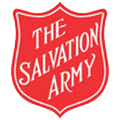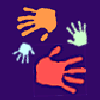| Child Support Enforcement/Paternity Organizations | |
 |
The Men & Fathers Resource Center is an incorporated organization that serves as the focus for several male-positive, father-friendly organizations and programs. Their HelpLine provides referrals to men all over the country for fathers' groups in their areas for men facing divorce, child support issues, paternity issues, custody modification, termination of rights, visitation denial, protective order or adoption. |
 |
National Child Support Enforcement Association (NCSEA) is the nonprofit, membership organization representing the child support community. |
|
|
|
| Crisis Intervention/Services | |
 |
Covenant House provides a variety of services to homeless youth including food, shelter, clothing and crisis care, health care, education, vocational preparation, drug abuse treatment and prevention programs, legal services, recreation, mother/child programs, transitional living programs, street outreach and aftercare. |
 |
The National Runaway Switchboard provides non-judgmental, confidential crisis intervention and local and national referrals through a 24-hour hotline. |
|
|
|
| General | |
 |
The American Public Human Services Association (APHSA) is a nonprofit, bipartisan organization of individuals and agencies concerned with human services. It educates members of Congress, the media, and the broader public on what is happening in the states around welfare, child welfare, health care reform, and other issues involving families and the elderly. |
 |
Catholic Charities USA is the membership association of one of the nation's largest social service networks. Catholic Charities agencies and institutions nationwide provide vital social services to people in need, regardless of their religious, social, or economic backgrounds. Catholic Charities USA supports and enhances the work of its membership by providing networking opportunities, national advocacy and media efforts, program development, training and technical assistance, and financial support. |
 |
The Child Welfare League of America (CWLA) is the nation's oldest and largest membership-based child welfare organization, promoting the well-being of children, youth, and their families, and protecting every child from harm. |
 |
The Children's Partnership is a national nonprofit, nonpartisan organization which undertakes research, analysis, and advocacy for the needs of America's children and youth by forging agendas for youth in areas where none exist, to help ensure that disadvantaged children have the resources they need to succeed, and to involve more Americans in the cause for children. |
 |
The Family and Corrections Network is for and about families of prisoners. The site offers training, technical assistance, and information on children of prisoners, parenting programs for prisoners, prison visiting, incarcerated fathers and mothers, hospitality programs, keeping in touch, returning to the community, the impact of the justice system on families, and prison marriage. FCN publishes FCN Report, the only national publication devoted to families of prisoners. FCN provides no legal services. FCN is a gateway to practice, policy, and research on families of offenders. |
 |
Staffed primarily by ex-offenders, The Fortune Society is a not-for-profit organization dedicated to assisting ex-offenders and at-risk youth break the cycle of crime and incarceration through a broad range of services which include: counseling, career development, housing, education, substance abuse treatment services, alternatives to incarceration services, health services, and volunteer/internship opportunities. We communicate with prisoners all over the country via the mail, answering questions and providing information for those who are in need of services. We are also dedicated to educating the public about prisons, criminal justice issues, and the root causes of crime. Fortune News, our quarterly journal, is sent free of charge to inmates and contributing members. |
 |
The National Council on Crime and Delinquency is a nonprofit organization which promotes effective, humane, fair and economically sound solutions to family, community and justice problems. NCCD conducts research, promotes reform initiatives, and seeks to work with individuals, public and private organizations and the media to prevent and reduce crime and delinquency. |
 |
Native Vision is enhancing the health and well-being of American Indian youth by developing and supporting reservation-based programs in three distinct but related areas: a healthy start to life; fitness; and school completion. |
 |
Adult rehabilitation centers are among the most widely known of all Salvation Army services and comprise the largest resident substance abuse rehabilitation program in the United States. Individuals with identifiable and treatable needs go to these centers for help when they no longer are able to cope with their problems. There they receive adequate housing, nourishing meals, and necessary medical care, and they engage in work therapy, spiritual guidance, and skilled counseling in clean and wholesome surroundings. Residents may be referred or be remanded by the courts. Free temporary shelter is available to homeless men and women in severe financial need. Low-cost housing also is available to men and women living on pensions or social security. Locations are listed by region. |
 |
The United Way invests in and activates the resources to make the greatest possible impact in communities across America. The United Way movement includes approximately 1,400 community-based United Way organizations. Each is independent, separately incorporated, and governed by local volunteers. |
|
|
|
| Government | |
 |
An online screening tool to help determine, anonymously, to what benefits a person may be entitled. It is free, easy-to-use, and completely confidential. The user answers a series of questions, and then GovBenefits.gov returns a list of government benefit programs you may be eligible to receive along with information about how you can apply. |
|
|
|
| Juvenile Justice | |
 |
The Center on Juvenile and Criminal Justice (CJCJ) is a private non-profit organization with a mission to reduce reliance on incarceration as a solution to social problems. |
 |
Street Law Juvenile Justice Re-Entry Program Street Law is a non-profit organization that works with educators, lawyers, juvenile justice professionals, and people in social service and community-based settings to create practical, participatory education programs about law, democracy and human rights. Street Law coordinates, and receives part of its funding from, the national Youth for Justice Program-a coordinated law-related education project funded by the US Department of Justice's Office of Juvenile Justice and Delinquency Prevention. This program supports work throughout the US to prevent delinquency through teaching youth about the law so that they can lead their lives within the law and become active citizens. |
|
|
|
| Mental Health | |
 |
The American Academy of Child and Adolescent Psychiatry (AACAP) is dedicated to treating and improving the quality of life for children, adolescents, and families affected by mental, behavioral, or developmental disorders. It is a membership based organization, composed of child and adolescent psychiatrists and other interested physicians. The AACAP widely distributes information in a effort to promote an understanding of mental illnesses and remove the stigma associated with them; advance efforts in prevention of mental illnesses, and assure proper treatment and access to services for children and adolescents. |
 |
The Federation of Families for Children’s Mental Health provides leadership for a nationwide network of family run organizations that target emotional, behavioral and mental disorders. The federation strives to react to the needs of all families, believing that mental illness effects all income, education, racial, ethnic and religious groups. |
 |
The National Youth Screening Assistance Project is an initiative that promotes use of the MAYSI-2 nationwide by providing information, technical assistance, and research services to juvenile justice systems that use the MAYSI-2. The MAYSI-2 is a standardized, reliable, 52-item, true-false, paper-and-pencil method for screening every youth of ages 12-17 entering the juvenile justice system, in order to identify potential mental health problems in need of immediate attention. |
 |
The Research and Training Center on Family Support and Children’s Mental Health uses collaborative research partnerships with family members, service providers and policy makers to promote effective community-based and family centered services for families and their children who are affected by mental, emotional and behavioral health disorders. |
 |
The Children's Mental Health Network site is maintained by the United States Department of Health and Human Services, Substance Abuse and Mental Health Services Administration. |
|
|
|
| Legal/Advocacy | |
 |
The goal of the MacArthur Foundation Research Network on Adolescent Development and Juvenile Justice is to reexamine the juvenile justice system by using sound science and legal scholarship. The Network works to achieve this goal through the critical analysis of juvenile justice policies and practices, the design and implementation of new research on adolescent development and juvenile justice, and the communication of the results of these activities to policy-makers, practitioners, journalist, and other social scientists and legal scholars. |
 |
The Coalition for Juvenile Justice (CJJ) serves as a premier national resource on delinquency prevention and juvenile justice issues. |
 |
The Juvenile Justice Center of the American Bar Association advances the juvenile defense bar through training, technical assistance, information dissemination and advocacy. |
 |
The Juvenile Law Center advocates for children who have come in contact with public agencies. The goal of the Juvenile Law Center is to ensure that children are treated fairly by the systems that were created to help them. Also the Juvenile Law Center focuses on ensuring that these children receive the proper services and treatments. The Juvenile Law Center has staff attorneys that represent a small number of children in dependency and delinquency cases in family court. This direct representation allows the Juvenile Law Center to be involved in the day-to-day activities of the child welfare system. |
 |
The Youth Law Center works nationwide to protect abused and at-risk children, focusing particularly upon the problems of children living apart from their families in child welfare and juvenile justice systems. Staff attorneys investigate reports of abuse of children in adult jails, juvenile detention facilities, state institutions, and child welfare systems, and use training, technical assistance and negotiation to bring about needed change. If abusive conditions or practices continue, the Center uses litigation as a last resort to protect children and ensure humane treatment. |
|
|
|
| General Services and Information | |
 |
The Annie E. Casey Foundation is a private institution that works to help build better futures for disadvantaged children who are at risk of poor educational, economic, and health outcomes. |
 |
A part of the Corrections Connection Network, this page is geared toward Juvenile Corrections Resources. |
 |
Volunteers of America is a national, nonprofit, spiritually based organization providing local human service programs and opportunities for individual and community involvement. |
|
|
|
| Special Needs | |
 |
The Autism-PDD.net website offers a search by state for resources to help autistic children and children with other special needs. |
 |
The National Dissemination Center for Children with Disabilities provides information to the nation on disabilities in children and youth; programs and services for infants, children, and youth with disabilities; IDEA, the nation's special education law; No Child Left Behind, the nation's general education law; and research-based information on effective practices for children with disabilities. The center maintains a list of state resources. |
 |
Parent Advocacy Coalition for Educational Rights (PACER) maintains a links page for Parent Training and Information Centers and Community Groups in the United States. |
|
|
|
| Vital Records | |
 |
Most programs, government or private, require birth certificates and/or other vital documents. This web page, which is part of the Center for Disease Control, provides the addresses for the state agencies from which these documents can be obtained. |
